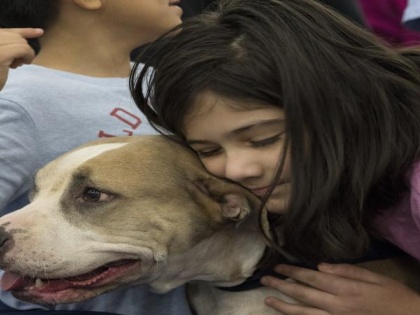Your canine friends can now pave way for cancer cure in humans
By IANS | Published: July 13, 2023 06:26 PM2023-07-13T18:26:43+5:302023-07-13T18:30:19+5:30
New York, July 13 In a breakthrough research, US scientists have identified dog genes that can hold potential ...

Your canine friends can now pave way for cancer cure in humans
New York, July 13 In a breakthrough research, US scientists have identified dog genes that can hold potential cure for cancer in humans.
A team from the Broad Institute of Massachusetts Institute of Technology (MIT) and Harvard University, and the University of Georgia, conducted the largest-ever genomic sequencing study of canine tumours.
The study, published in the journal Scientific Reports, examined real-world clinical genomic data from 671 pet dogs with cancer across the US and analysed tumour samples to identify genetic mutations driving canine cancers.
These samples were then compared to a large database of nearly 25,000 human tumour samples to identify overlapping mutations between the two species.
The researchers identified 18 mutation "hotspots" that are likely primary drivers of canine cancers. Although 10 of these hotspots have not been previously reported in humans, the remaining eight were shared by humans and dogs.
Many of these hotspots can also be targeted with small molecule drugs that are already approved for human cancer patients. This means canine cancer patients will have increased access to highly effective precision treatments that can replace or augment traditional one-size-fits-all approaches such as chemotherapy, radiation, or surgery.
At the same time, the genetic data from canine tumours can accelerate the development of precision cancer drugs for humans. The findings also showed several previously unreported mutation hotspots in canine cancers, demonstrating their ability to reliably predict whether a tumour is somatic or germline based on tumour tissue alone.
"This study provides the most comprehensive genomic sequencing data on canine cancers, including several previously unsequenced types, and serves as a much-needed resource for comparative oncology," said Shaying Zhao, a professor at the University of Georgia and a co-author of the study.
Disclaimer: This post has been auto-published from an agency feed without any modifications to the text and has not been reviewed by an editor
Open in app